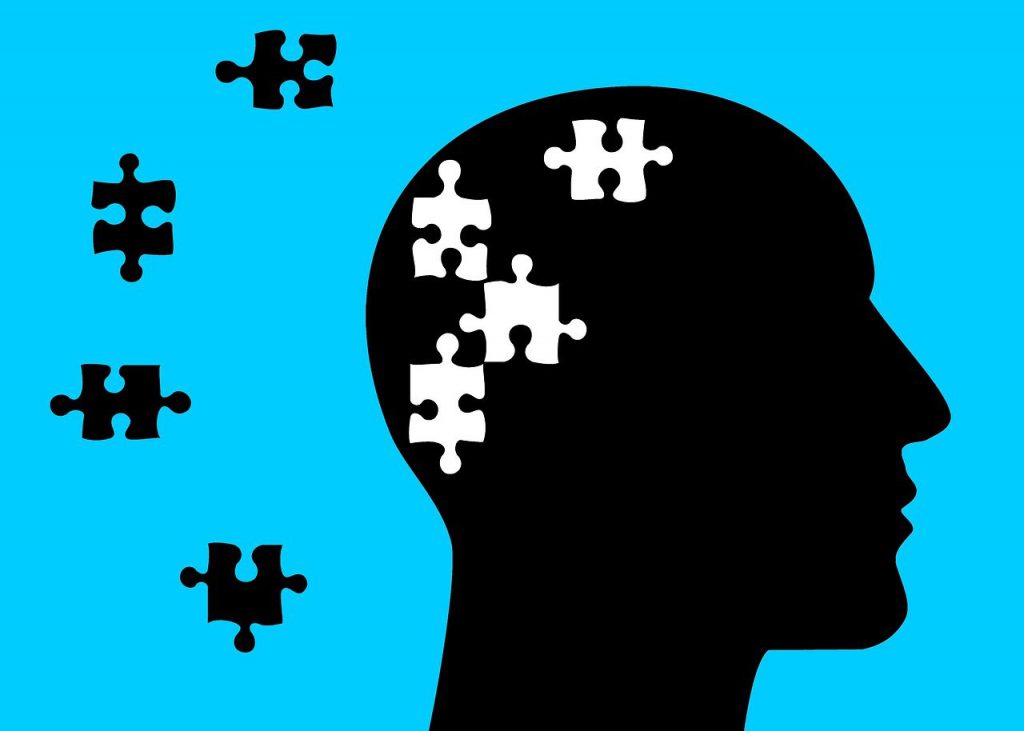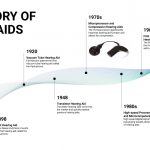
Hearing loss alone can be a massive inconvenience for sufferers. Still, the fact that hearing loss can cause other health problems is relatively unknown. Walking problems, falls, and even dementia can be on the table when hearing loss is left untreated! We will explore the health risks posed by hearing loss in this article.
Contents
What Are The Different Types of Hearing Loss?

As hearing loss can occur when any part of the ear isn’t working in the usual way, it comes in a few different forms and levels of severity.
For example, hearing loss could be caused by an obstruction in the ear that makes it impossible for sound waves to transfer from the outer ear to the brain. This obstruction is often treatable with medicine or surgery, so make sure to see your doctor if you are experiencing hearing loss.
Other types of hearing loss are more complicated and can affect the way the inner ear or the auditory nerve works. This type of hearing loss is much harder to treat, and unfortunately, much more common.
It’s possible to measure hearing loss in different degrees; mild, moderate, severe and profound. Those with mild hearing loss may miss certain things in conversations, especially in noisy environments, but those with severe or profound hearing loss will only be able to hear loud sounds of certain frequencies.
It’s easy for those with mild hearing loss to ignore it and carry on without visiting their doctor or getting a hearing test. No matter how small, it’s best to catch hearing loss as soon as it starts to occur, as untreated hearing loss can lead to other issues.
Untreated Hearing Loss
The adverse effects of hearing loss can work together to exacerbate health problems. Although researchers are still investigating the precise nature of how the brain’s structure changes with hearing loss, brain scans have shown that hearing loss can lead to faster atrophy of the brain.
Furthermore, those with hearing loss tend to experience a greater level of social isolation. Not taking part in social events, or not feeling as if you are able to, can even lead to depression.
For more information, make sure to check out our article on the Effects of Untreated Hearing Loss.
Can Hearing Loss Cause Memory Problems?

If left untreated, yes, hearing loss can possibly lead to memory problems.
Why? Hearing loss can make it much more difficult for you to participate socially, whether this is engaging in fast-moving conversations or chatting on the phone. This can lead people to withdraw from their social lives and places a strain on relationships with family and friends.
If this results in a more isolated and quiet life where your brain is not being constantly challenged like it used to be, your mind will go from working very hard to not having to work very much at all. This can be detrimental to your memory health.
It’s always important to keep your brain active, especially in old age, but hearing loss can act as an obstacle to engaging in the mental challenges of daily life, with repercussions down the line. Researchers have even found that people with central hearing loss (a rare type of hearing loss that affects the auditory nerve) are twice as likely to have mild cognitive impairment as people who have no hearing loss.
Although there may also be a correlation between the relationship between hearing loss and cognitive decline, hearing loss can undoubtedly contribute to the deterioration of memory health and other mental capacities.
Does Hearing Loss Increase the Risk of Dementia?
Symptoms of both hearing loss and dementia already align, meaning hearing loss can be easily misdiagnosed as dementia (or at least, can make dementia symptoms seem worse). Confusion in conversations, changes in communication behavior, and reports of stress and fatigue can be indicative of both conditions, as can a general difficulty in completing daily tasks.
Recent research on the relationship between hearing loss and dementia has revealed a possible causal link. Further research is needed to identify the exact link between the two conditions, but as hearing loss was the highest of the nine potential risk factors for developing dementia (9%), the association is clear.
A different study conducted by Professor Helene Amieva in France following people over 65 with and without hearing problems for up to 25 years found that those with hearing problems were more likely to develop dementia.
Furthermore, Frank Lin, M.D., PhD, and his colleagues found that even mild hearing loss doubled dementia risk, moderate loss tripled risk, and people with a severe hearing impairment were five times more likely to develop dementia.
How to Decrease Your Risk of Dementia with Healthy Hearing
If you’re finding it hard to follow conversations in restaurants, struggle to hear on the phone, feel that people are always mumbling, or are always asking people to repeat themselves, now is an excellent time to organize a hearing test. This will help you get to the bottom of what’s causing your hearing problems.
If you have started to notice a decline in your hearing, it pays to be proactive. If your hearing loss has a treatable underlying cause, you’ll be able to get a diagnosis and faster treatment. If there’s no treatable underlying cause, you need to know.
Astoundingly, hearing aid users wait on average ten years before they start using a hearing aid. This is a long time in which other health problems can develop. If you’re diagnosed with moderate to profound hearing loss, you’ll be able to chat to your doctor about getting fitted with a hearing aid.
If you’re only experiencing hard times hearing in certain environments, you could benefit from the use of a Personal Sound Amplification Product (PSAP), such as the Olive Smart Ear, to amplify environmental sounds and improve your auditory experience.
It’s important to get the appropriate help for your diagnosis. Get a hearing test, and your doctor can point you in the right direction.
Can Hearing Loss Cause Other Health Problems?

Untreated hearing loss presents further health risks than the ones discussed above. For example, it can impact your ability to balance! This is because your ears detect subtle but important cues that help with your balance, and hearing loss mutes these signals. As your brain works overtime trying its hardest just to process sound, it is forced to multitask at a level it shouldn’t have to, straining its capacity to engage in the mental process required to walk safely.
Related to walking, hearing loss can also cause experiences of vertigo.
Hearing loss is also associated with tinnitus, which is when you hear a continuous or intermittent ringing in your ears – read our detailed tinnitus guide to find out more.
If you think you’re experiencing some of the symptoms of hearing loss, don’t wait to contact your doctor or audiologist. They’ll be able to give you a hearing test and talk you through your diagnosis and treatment options.
The information in this guide has been written using the following reliable sources:
https://journals.lww.com, https://www.hopkinsmedicine.org, https://www.cdc.gov, https://actiononhearingloss.org.uk, https://www.ncbi.nlm.nih.gov, https://www.audiology.org, https://www.aan.com, https://www.alzheimers.org.uk, https://www.thelancet.com








